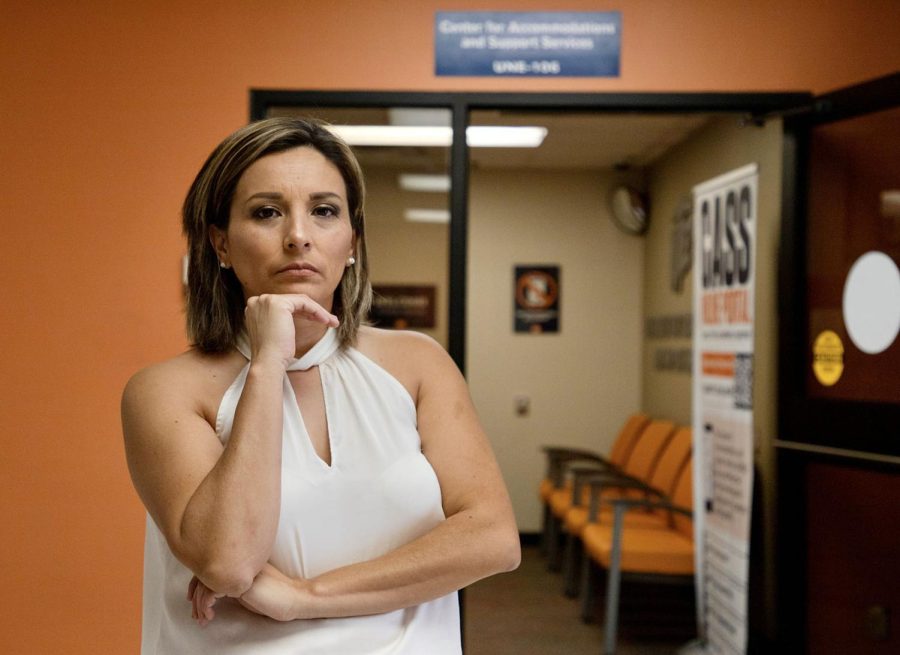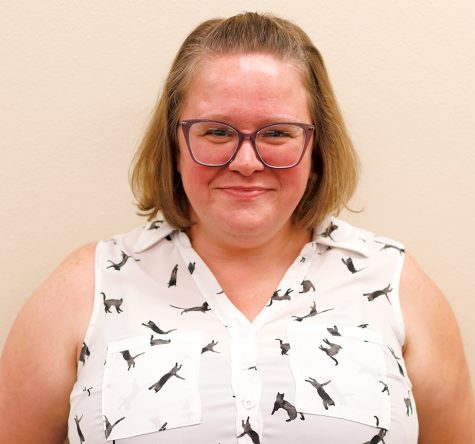UTEP criminal justice major Dyana Guillen-Garza has challenged the Center for Accommodations and Support Services (CASS), policy after receiving multiple suggestions to take medical leave instead of finishing her summer classes.
On top of living with a chronic illness that impacts her day-to-day life, Guillen-Garza is juggling being a mother and a UTEP student. Soon to be 43 years old, Guillen-Garza says that it is time to finally get her bachelor’s degree and stop letting her illness hold her back.
Guillen-Garza started at UTEP in the fall semester of 2020, having to adjust and drop classes to accommodate her illness. Guillen-Garza said that she did not have trouble with the system, until this summer.
“I never really had any trouble with any professors up until this summer of 2022. That’s the only time that I’ve struggled with professors being very understanding of what I’m going through,” Guillen-Garza said.
Per CASS policy, she was allotted an extra day and a half to complete her assignments, however, it was not enough for Guillen-Garza, who struggles with memory and understanding due to her illness. Guillen-Garza admits that she is partly responsible because she was not well enough to read how much extra time she was given, regard-less, she feels a day and a half is not enough time.
Professors had suggested she consider taking medical leave, but this was not an option for Guillen-Garza. Guillen-Garza has had to take medical leaves in the past and feels as if continuing to do so will continue to prevent her from graduating.
“I think that I’ve recognized that I have a condition, and it got to a point where it was taking away from my life and what I wanted to do. And I feel if I can stay afloat and maintain, that I can reach that goal and I think it does send a positive message,” Guillen-Garza said. “And I said that, not just to myself, but to others, that we have the resources and the support around us to try and meet those goals.”
Alyssa Gutierrez, director for CASS, and Dr. Charles Gibbens, assistant vice president of student support, broke down the process CASS uses to decide what accommodations students can receive.
The process begins with meeting a coordinator to determine the disability and how it is exhibited in the student, examine any support-ing documentation, and converse about the classes and the challenges posed by those classes.
“Once we ascertain from the discussion with the student, as far as what the challenges are, we have conversations about accommodations and what would be most appropriate and reasonable for the student, in order to be able to ac-cess the instruction and then work within the classroom,” Gutierrez said.
Once the accommodations are set, letters are sent to faculty members that a student needs these specified accommodations. It is the student’s responsibility to meet with their professors to discuss those accommodations.
Gibbens said CASS is centered around the support and success of the students. He says it is not up to the faculty to determine accommodations; professors can only refer the students to CASS.
“The whole goal behind CASS is to level the playing field. It’s not to give an unfair advantage, but it is to help level the playing field. And it’s important to note that the only group on campus that can provide an academic accommodation is CASS,” Gibbens said.
Guillen-Garza insists there should be medical professionals included in the conversation for accommodations. Her case is still on-going after her meeting with Gibbens.
“UTEP, as a university, has to find something, I guess a medical director, or a couple of them; not just one because not just one provider is going to know everything. And I think it takes collaboration between different medical directors and providers that have expertise to judge,” Guillen-Garza said.
The ADA determines and pro-vides access and opportunity for those living with a disability and is led by Gutierrez and Beatriz Tapia, director of the Equal Opportunity office and ADA coordinator. The ADA Advisory Committee was formed in spring 2022. During a meeting on Monday, Aug. 15, Tapia explained that the EO office works with employees on accommodations and CASS works with student needs, but the offices do work with individuals’ needs on a case-by-case basis.
“And sometimes it does take some back-and-forth to ultimately make sure that we provide them what is necessary, what may be appropriate, what may be reasonable, so unfortunately, sometimes it take a little bit of that, but ultimately within to meet that need of that particular individual,” Tapia said during the meeting.
To find out more about the ADA Advisory Committee, visit utep.edu/ada-advisorycommittee. To learn more about CASS and its policies, visit utep.edu/student.
Kristen Scheaffer is a contributor and may be reached at [email protected].












